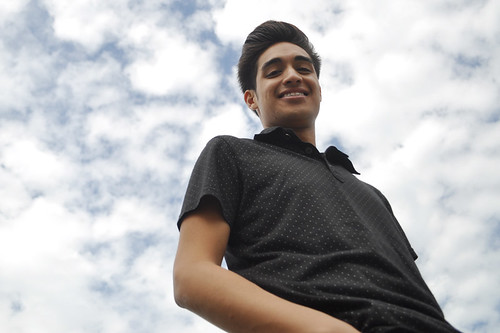
A single table draped with a purple banner and lined with a few stacks of golden fliers was the only noticeable mention of the Associated Students Inc., elections this year. It was difficult to tell that last year’s elections garnered crowds of students surrounding decadent arrays of balloons and banners following fierce campaigning.
The new board, which mostly ran unopposed, is already in the process of creating more events, better means of marketing and more student outreach.
“Our marketing hasn’t been too stellar,” said Nick Coluzzi, incoming vice president of finance who ran unopposed. “We need to start putting ourselves out there more than we have been. We really need to brand ourselves on the events we put on.”
One issue facing the new governing board is a lack of funding.
Currently, students pay $42 in fees that go toward funding ASI and its functions. However, a new referendum would increase that fee by $12 over three years.
“If the referendum doesn’t pass, this will be the worst job I’ll ever have,” said Coluzzi, who won with 449 votes out of 475 total responses. “I’ll have to start looking at student organizations to cut, and programs like Project Rebound and the Women’s Center won’t be funded.”
There has been no student body fee increases since 1992, therefore, ASI has not managed to catch up with the economic inflation. Because of this, the board currently faces a deficit.
“My first goal is to get the referendum passed,” said Andrew Gutierrez, president-elect who also ran unopposed. “We’re providing so much more for students and we need funding. I’m already planning as if the referendum passed, and I would really like to be able to enhance our programs for the students.”
Gutierrez won the election with 490 votes out of 521 total responses.
Student involvement with the governing board and unifying the campus is also on the agenda for many of the incoming board members. Ideas on the drawing board include an ASI newsletter, and more town hall meetings and workshops.
“We need to plug people where they want to be,” said Franko Ali, newly elected vice president of university affairs who also ran unopposed. “There are committees out there that need student representation, there’s residential life and relations that need to be kept between departments. Everyone needs to be connected.”
Ali won with 496 votes out of 573 total responses.
Last year, 2,926 total votes were counted, which accounted for nearly 11 percent of the campus. Some candidates received up to 2,058 votes.
This year, according to the unofficial election results, the most popular candidate received 496 votes.
“I was extremely disappointed with the election,” Ali said. “If people are going to vote, people need to know about it. One of my other goals is to work on the election during the whole year.”
Ali also hopes to continue the projects he was working on this year as the creative arts representative, including creating more events—something some students believe they don’t see enough of.
“I know I pay for it, but I don’t see anything happening,” said Robyn Ollodort, psychology major. “And I didn’t vote for anyone because I didn’t know who was running, I didn’t know where to vote, I didn’t know anything about it.”
Poor weather hampered campaigning and a change in election regulations, such as online-only voting and prohibiting the candidates from giving out food, also contributed to putting a damper on the election.
“It didn’t really bother me,” Gutierrez said. “Last year we had sunshine, free food and we worked our butts off. It was different this year. Most of the people (I talked to) who did vote were from student organizations. I would rather get a vote from someone I got to know than from someone whose vote I bought with a slice of pizza.”
The push toward engaging students has some bemused as they viewed last year as more engaging than this year.
“How am I supposed to feel represented by people who I don’t even know are representing me?” said Gabrielle Meindl, Japanese major. “I voted last year because I actually knew who was running. There was much more outreach last year. People came to my classes, there were fliers everywhere. This year I think I only saw one flier the whole time it was going on.”
As the campus pushes to become less of a commuter school, ASI hopes more events will create a more welcoming environment for students.
“While there’s not as much campus housing, the vast majority of students live close within the city or Daly City,” Coluzzi said. “That’s not too far for people to travel over here. We want a good, safe, secure place for students to hang out during the week and on weekends.”
Members of the ASI board will also be required to attend the events in uniform under Gutierrez’s plan to interact with students more.
“We’re students and it’s hard for us to do everything, but we can take the time to be there from 6 to 8 p.m. on a Friday,” Gutierrez said. “We need to be active. People may not like what we’re doing and we want them to tell us.”





Brutus • Apr 6, 2011 at 1:17 am
Online-only voting isn’t new, & it wasn’t new last year, either. Also, the ban on providing food right next to a voting booth was the idea of several of the candidates running…